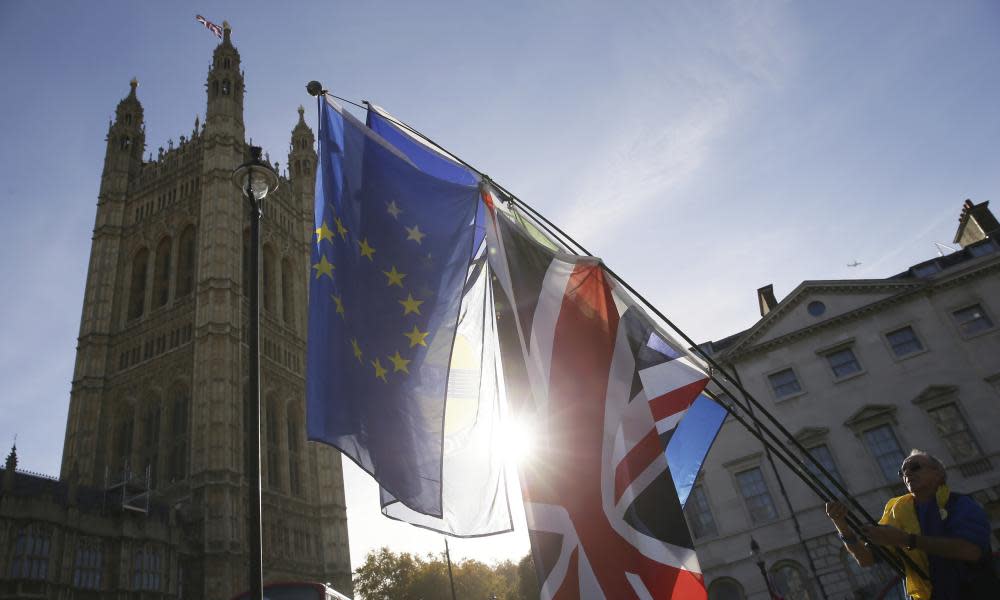Cautious welcome for Brexit deal across Europe before Raab resignation

European politicians and commentators gave the Brexit accord a tentative welcome before the resignation of cabinet ministers Dominic Raab and Esther McVey threw the process back into uncertainty.
The morning after EU and British negotiators struck a draft agreement on a 585-legal document, there was a sense of relief that a deal could be close.
Ireland’s prime minister, Leo Varadkar, said he was pleased that an agreement on a draft text had been reached. He added: “While I welcome these developments, Brexit is not our policy [and] is something we regret. However, we respect the vote of the people of the UK.”
Konrad Szymański, Poland’s EU affairs minister, said: “Just the fact of the agreement is very positive and very promising.”
Both were speaking on Wednesday evening, before Raab, the Brexit secretary, quit the British government early on Thursday, raising questions about whether the deal will stick.
Officials stress that the withdrawal agreement must still be agreed by the EU’s other member states, as well as the British parliament. Work is also ongoing on a political declaration that is expected to map out the future relations.
“This is not an end point,” Varadkar said. “The full text of the withdrawal agreement – all 500 pages – will be scrutinised in the coming days. There is still a long way to go but I believe the draft agreement published today is a very solid step on the journey.”
Speaking to the Polish press agency PAP, Szymański emphasised the importance of “establishing new, ambitious rules of cooperation between Britain and the European Union, both economic and political, as well as in the area of security”.
The Polish government, he added, had “high expectations for a political declaration on new relations, on which we are just starting work and internal negotiations within the EU27”.
Much of the newspaper coverage across Ireland and continental Europe focused on the political turmoil in the UK, with reports on whether the Theresa May could sell the deal to MPs.
Le Monde describes the deal as “a decisive step” and a success for May – but it notes there could be difficult days head. The Danish paper Berlingske says the prime minister is fighting “with her back against the wall”, adding that thousands of Danish jobs are at risk. The British people “are beginning to understand the EU is not a buffet”, the paper says.
In Italy, where the news agenda is dominated by the Italian government’s battle with Brussels over its draft budget, several commentators turned their attention to the deal.
“Like a chorus, for two-and-a-half years Theresa May repeated the same slogan regarding the Brexit negotiations: ‘No deal is better than a bad deal’. Now she concedes the opposite: a bad deal, after all, is better than no deal,” writes Enrico Franceschini, in La Repubblica.
He reflects on comparisons to the Suez crisis, made a few days ago by Jo Johnson, when he resigned from the government. Brexit “will be much worse than Suez, writes Franceschini. “That crisis, in which London bitterly realised it was no longer an empire, quickly exhausted itself, leaving few traces, except in the psyche of the subjects of Her Majesty. Instead the consequences of Brexit, however soft, will last a long time.”
In Il Giornale, the commentator Gaia Cesare, writes: “Nobody likes the Brexit deal negotiated with the EU. Two-and-a-half years after the referendum and 134 days before the 29 March exit date, Great Britain is in a limbo that is unnerving politics and the economical operators.”

 Yahoo News
Yahoo News 
